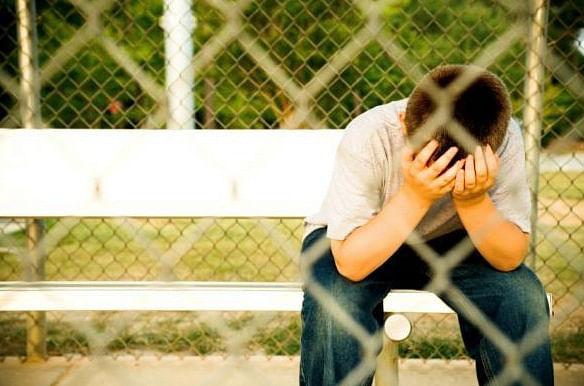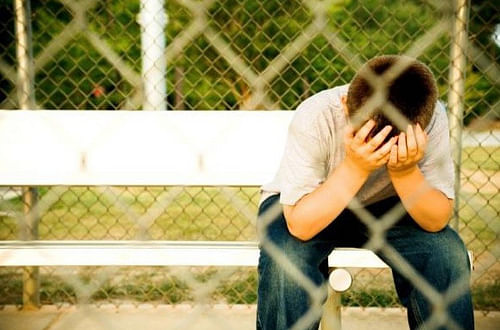
Do parents push their children too far?

“It’s better to be a failure at something you love, than a success at something you hate.”
The junior tour is an extremely competitive and malicious time for young sportspeople. This is the time that can either make or break a person’s career; and parent participation has never been higher. In fact, often the parents seem more anxious and jumpy during a match than the player themselves! At that age, no-one has achieved anything substantial, so the pressure to perform is huge. Pressure from peers, coaches, journalists and parents. Yes, parents. The very people who are supposed to support you and encourage you, become the very reason for your downfall.
These parents are often either failed sportspeople or sport-obsessives; they try to follow their dreams through their children. This happens very often in tennis. We’ve all seen that one parent who stays at the sideline and shouts encouragement and even abuses at their own child. Coaches, referees and opponents also often feel the intimidating wrath of these parents.
Recently at a club match in the USA, a parent was fined for picking a fight with the chair umpire because of a possible ‘wrong’ line call. These incidents have become increasingly common and are a constant nightmare for tournament organisers who dread these situations. This over involvement of parents causes many problems for the players too.
Richard Williams (father of Serena and Venus Williams) has been accused many times of ‘forcing’ his children to take up tennis. Whether that’s true or not, is left for the general public to decide. The story goes like this: One day while Mr Williams was watching TV, he saw the 1978 French open champion Virginia Ruzici playing. He learnt that women like her earned $40,000 for every week of tournament play.
From that moment onwards he was hooked to the game and decided that atleast one of his daughters would become a tennis player. He went out and bought coaching videos, balls, racquets, and fitness equipment. After that it was just a matter of time before each of his daughters tried their hand at tennis. Isha and Yetunde(the older siblings) played tennis but left it very soon to concentrate on a normal life. Venus continued, and Serena says that she always felt like she was walking in the shadow of her big sister.
Whatever Serena achieved, Venus had already achieved that a few years earlier. They started to play tennis from the age of six and were physically and mentally trained as champions from that age itself. So, was it a good thing? Maybe, as they are now two of the most successful ladies in tennis. Maybe not, as conditioning a child in a particular way from an extremely young age can change their perspective about life. They’ll suddenly grow up, find themselves as teenagers and all they’ll remember about their childhood is the long hours they spent on court. Serena’s normal routine was school, tennis, sleep, repeat. Where’s the wholesome development here?
Most of us can’t believe this, but imagine your parents deciding your career before you were even born! A man had his children’s career worked out before he even knew he was going to have kids! That’s what YOU’RE supposed to do as a teenager, go through early life and decide what you’re good at, what you want to make a career out of. But these kids are only going to be sportspeople. Why? Because they’re good at nothing else. Instead of learning trigonometry or French verbs, they’re learning tactics and hitting balls until their arms are sore.
Another major athlete who has faced the madness of parental pressure from a young age is Andre Agassi. Throughout his childhood he had to cope with his father’s violent fits, tedious practice sessions he secretly hated and not fitting in with his peers. Something that Agassi describes as the dragon(a modified and faster version of a ball machine) was an integral part of his daily practice, a thing that he had come to dread and something that still haunts him in his nightmares. His father, an Armenian born in Iran, was a street boxer in his teenage years.
As a kid, he used to act as a ball-boy for the British soldiers playing tennis in their free time. From the minute Andre was born, his father decided he would be a tennis player. From the age of 3, he was given a racquet to start hitting with and by the age of 7 years, he was hitting almost 2,500 balls a day. His father stood behind him during those ‘practice/torture sessions’, yelling in his ear and giving him a touch of rage every time he hit a error. Conversation over dinner was not about what happened in school, but what tactics to utilise on his next opponent.
All this coupled with ‘fitting in’ issues, caused him to rebel and have a intense hatred towards the game. In his own words “I play tennis for a living, even though I hate tennis, hate it with a dark and secret passion, and always have.”
Obviously parents should have a major role in their children’s life, after all it’s their job to to guide and motivate them, but this obsession with charting out a child’s life plan before they’ve matured has to be halted.
“It is better to be a failure at something you love, than be a success at something you hate.”
How many top athletes actually hate the game they play? How many have been forced into it because of their parents? How many have sacrificed their childhood for a sport they secretly loathed? We can just speculate.